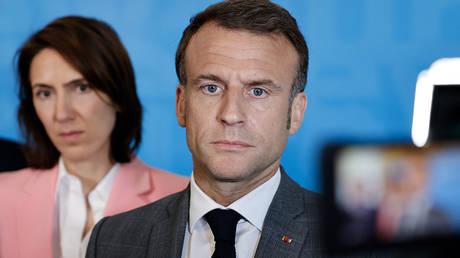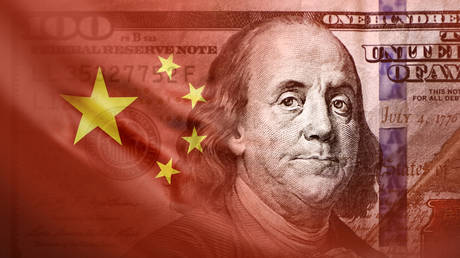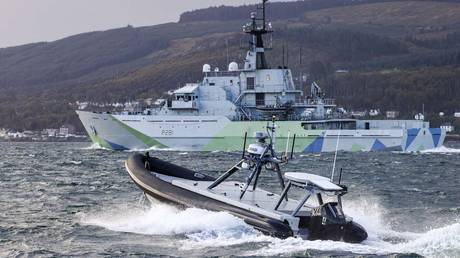
The French president has previously called on the continent to show that it is not a “vassal” of the US
France must open a debate on building up a pan-European defense capability, to include rethinking its own nuclear potential, French President Emmanuel Macron has said.
Speaking to a group of young people at the European School in Strasbourg on Friday, Macron stressed that while France is already protected by NATO, it “must now go further” to ensure its security and “build a credible European defense.”
He noted that guaranteeing that security “may mean deploying anti-missile shields” to be able to deter the use of nuclear weapons. “Being credible also means having long-range missiles that would deter the Russians,” he added.
Numerous Western leaders have insisted on boosting defense capabilities amid the Ukraine conflict, citing fears that Russia could attack NATO within a few years.
Russian President Vladimir Putin, however, has dismissed such speculation as “nonsense,” pointing to the fact that the US, NATO’s largest contributor, spends ten times more on defense than Moscow. He has also stated that current geopolitical tensions are largely due to NATO’s decision to ignore Russian security interests.
Explaining his stance on nuclear weapons, Macron went on to say that while France would use its arsenal only if its vital interests were threatened, those interests also have a European dimension. This means that French nuclear doctrine should contribute to the credibility of the continent’s defense, he said.
“I am in favor of opening this debate, which must therefore include anti-missile defense, long-range weapon firing, nuclear weapons for those who have them or who have American nuclear weapons on their soil,” the president stated.
For several years, Macron has also advocated creating a “true, European army” to be able to independently strengthen continental security. This month, he also warned that “our Europe today is mortal and it can die” while calling for a “strategic autonomy” for Europe, particularly in terms of military production. The region “must show that it is never a vassal of the United States,” he said.
The idea of creating a joint EU army, however, has met strong pushback both in Brussels and in EU capitals. EU top diplomat Josep Borrell suggested last month that while the bloc should aspire to boost the military capabilities of its individual members, that does not mean it should create a common army.
Several EU states, including Denmark and Poland, have similarly signaled that they want their security guaranteed within the existing NATO framework.




